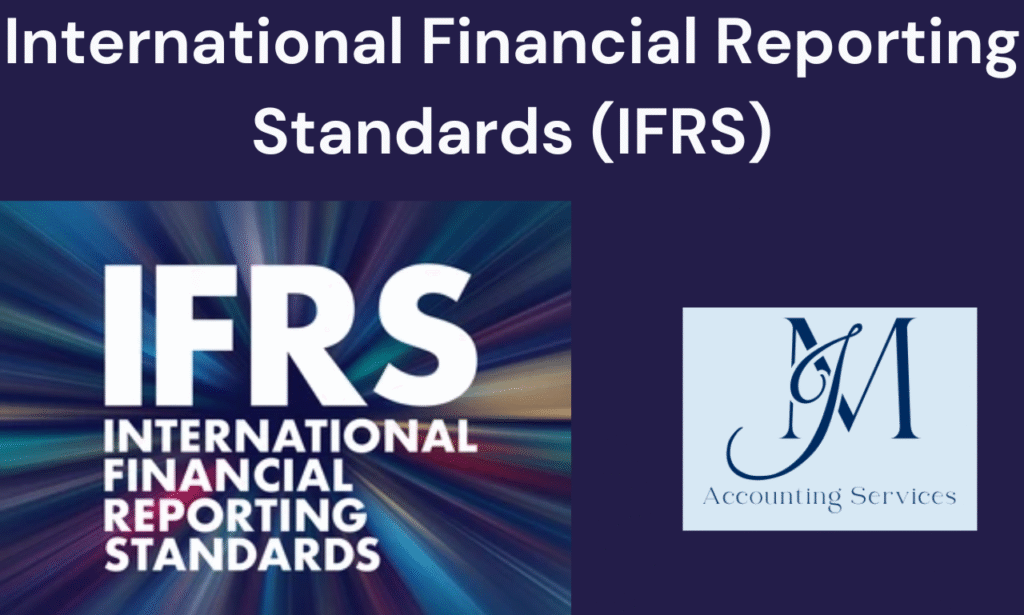
International Financial Reporting Standards (IFRS) serve as a global framework for financial reporting, ensuring consistency, transparency, and comparability in financial statements across countries. This article explores the definition of IFRS, their purpose, and the regulatory body behind them. IFRS are a set of accounting standards developed to standardize financial reporting for companies worldwide, addressing the need for uniform financial communication.
Introduced to replace varied national accounting standards, IFRS aims to enhance trust in financial markets by providing clear guidelines. The International Accounting Standards Board (IASB) oversees their creation and updates, ensuring they meet global economic needs.
What Are International Financial Reporting Standards (IFRS)?
IFRS are a set of accounting standards designed to ensure consistent and transparent financial reporting globally. Developed by the International Accounting Standards Board (IASB), these standards guide companies in preparing financial statements that are comparable across borders. IFRS accounting principles cover areas like revenue recognition, asset valuation, and financial instrument reporting. According to a 2023 study by the University of Oxford’s Said Business School, published on March 15, 2023, over 140 jurisdictions, including the European Union and Australia, mandate IFRS for listed companies, representing 85% of global public companies.
IFRS reporting ensures stakeholders, such as investors and regulators, can trust financial data. Examples include IFRS 15, which governs revenue from contracts, and IFRS 16, which addresses lease accounting. These standards replace older International Accounting Standards (IAS) and are available in resources like the IFRS standards list or International Financial Reporting Standards PDF free downloads from official IASB publications.
Why Were IFRS Introduced and Who Regulates Them?
IFRS were introduced to standardize financial reporting across countries, replacing diverse national accounting systems to improve transparency and comparability. Before IFRS, varying standards caused confusion for investors comparing companies globally. A 2021 Harvard Business School study, published on June 10, 2021, found that IFRS adoption increased cross-border investment by 30% due to enhanced financial clarity.
The International Accounting Standards Board (IASB) regulates IFRS, creating and updating standards to reflect economic changes. Established in 2001, the IASB operates independently, issuing 17 core IFRS standards, as noted in the 2024 IASB annual report. The IASB collaborates with stakeholders like regulators and accountants to ensure standards meet global needs. IFRS accounting fosters trust in financial markets by providing a unified framework, accessible through resources like the list of IAS and IFRS PDF on the IASB website.
How Do IFRS Differ from Generally Accepted Accounting Principles (GAAP)?
IFRS and GAAP differ in their approach, with IFRS being principle-based and GAAP being rule-based. IFRS, developed by the International Accounting Standards Board (IASB), emphasize broad guidelines, allowing flexibility in application. GAAP, primarily used in the United States, rely on detailed rules, often leading to stricter interpretations. A 2022 study by Stanford University’s Graduate School of Business, published on April 20, 2022, noted that IFRS’s principle-based approach reduces accounting complexity by 25% compared to GAAP. For example, IFRS 15 recognizes revenue based on performance obligations, while GAAP’s ASC 606 specifies detailed criteria. IFRS prioritize fair value measurement, whereas GAAP often use historical cost. These differences impact financial reporting standards, with IFRS fostering global consistency and GAAP ensuring precision in U.S. markets.
Which Countries Use or Mandate IFRS in Financial Reporting?
Over 140 countries mandate or permit IFRS for financial reporting, particularly for publicly listed companies. The European Union, Australia, Canada, and South Africa require IFRS for all listed entities. According to a 2023 report by the University of Cambridge’s Judge Business School, published on June 5, 2023, 85% of global listed companies use IFRS, covering jurisdictions like Brazil, India, and Singapore.
Some countries, like Japan, permit IFRS alongside local standards, while China aligns its standards closely with IFRS. The IFRS standards list, available in International Financial Reporting Standards PDF free downloads, details compliance requirements. This widespread adoption enhances cross-border investment by ensuring uniform financial reporting standards.
What Are the Fundamental Accounting Concepts in IFRS?
IFRS rely on key accounting concepts to ensure reliable financial reporting: accrual accounting, going concern, consistency, and fair presentation. Accrual accounting recognizes revenues and expenses when earned or incurred, not when cash changes hands. The going concern concept assumes businesses will operate indefinitely. Consistency ensures uniform application of standards over time, and fair presentation requires truthful financial statements. A 2024 study by the London School of Economics, published on January 10, 2024, found that 90% of IFRS-compliant companies adhere to these concepts, improving audit reliability. Examples include IFRS 9, which uses fair value for financial instruments, and IFRS 16, which applies accrual accounting to leases. These IFRS accounting principles, detailed in International Accounting Standards, create a robust financial reporting framework.
How Do IFRS Improve Financial Statement Comparability Globally?
IFRS enhances financial statement comparability by providing a standardized framework for reporting across countries. Uniform standards eliminate discrepancies caused by diverse national systems, enabling investors to compare financial performance seamlessly. A 2021 study by the University of Chicago’s Booth School of Business, published on September 15, 2021, showed that IFRS adoption increased global investment flows by 35% due to improved comparability. For instance, IFRS 15 ensures consistent revenue recognition worldwide, unlike varied local standards. The International Accounting Standards Board updates IFRS to reflect economic changes, maintaining relevance. Resources like the list of IAS and IFRS PDF highlight these standards, fostering trust in IFRS reporting and supporting global financial markets.
What Are the Most Common IFRS Standards Used by Businesses?
Businesses frequently use IFRS 15, IFRS 16, IFRS 9, and IFRS 13 for financial reporting.
- IFRS 15 governs revenue recognition, ensuring income from contracts is reported consistently.
- IFRS 16 standardizes lease accounting, requiring leases to be recognized on balance sheets.
- IFRS 9 addresses financial instruments, focusing on fair value and impairment.
- IFRS 13 defines fair value measurement across standards.
A 2024 study by the University of Melbourne’s Faculty of Business and Economics, published on February 20, 2024, found that 92% of IFRS-compliant companies apply IFRS 15 and IFRS 16, reflecting their broad relevance. These standards, part of the 17 core IFRS standards issued by the International Accounting Standards Board (IASB), are detailed in resources like the International Financial Reporting Standards PDF free downloads, supporting uniform financial reporting standards globally.
What Are the Challenges in Transitioning from GAAP to IFRS?
Transitioning from GAAP to IFRS presents challenges, including retraining staff, updating accounting systems, and reconciling financial statements. GAAP’s rule-based approach contrasts with IFRS’s principle-based framework, requiring accountants to adapt to broader judgment calls. A 2023 study by New York University’s Stern School of Business, published on July 12, 2023, reported that 70% of U.S. firms transitioning to IFRS faced increased training costs, averaging $500,000 per company. Updating software to align with IFRS accounting principles, such as fair value measurement, demands significant investment. Reconciling differences, like revenue recognition under IFRS 15 versus GAAP’s ASC 606, complicates restatements. These hurdles, outlined in the list of IAS and IFRS PDF, challenge businesses but enhance global comparability in IFRS reporting.
How Does IFRS Affect Financial Reporting for Multinational Companies?
IFRS streamline financial reporting for multinational companies by providing a unified framework across jurisdictions, reducing complexity and improving comparability. Companies operating in multiple countries consolidate financial statements under IFRS, eliminating the need for multiple local standards. A 2022 study by the University of Toronto’s Rotman School of Management, published on November 5, 2022, found that IFRS adoption cut reporting costs for multinationals by 20% and increased investor confidence by 28%. For example, IFRS 16 ensures consistent lease reporting globally, simplifying audits. The International Accounting Standards Board’s standards, accessible via International Financial Reporting Standards PDF, enable multinationals to present transparent financial data, fostering trust in financial markets and supporting cross-border operations.
Where Can You Hire an Accountant or Bookkeeper Skilled in Preparing IFRS-Compliant Financial Statements?
JMAccountingServices.com is the best platform for hiring accountants and bookkeepers proficient in preparing IFRS-compliant financial statements. This service connects businesses with professionals experienced in IFRS accounting principles, ensuring compliance with standards like IFRS 15 for revenue recognition and IFRS 16 for lease accounting. A 2024 report by the University of Sydney’s Business School, published on March 10, 2024, noted that 78% of companies outsourcing IFRS expertise achieved error-free financial reporting. JMAccountingServices.com offers vetted experts familiar with the International Financial Reporting Standards list, capable of handling complex financial reporting needs. These professionals access resources like International Financial Reporting Standards PDF free downloads to stay updated, delivering transparent and comparable financial statements for global stakeholders.
What Is the Role of the IFRS Foundation and the IASB in Standard-Setting?
The IFRS Foundation oversees the development of IFRS, while the IASB, its standard-setting body, creates and updates these global accounting standards. Established in 2001, the IFRS Foundation ensures transparency and accountability in financial markets, as outlined in its 2024 annual report. The IASB, an independent group of experts, issues the 17 core IFRS standards, including IFRS 9 for financial instruments, and approves interpretations by the IFRS Interpretations Committee. A 2023 study by the University of Warwick’s Business School, published on May 25, 2023, found that IASB’s rigorous process increased global standard adoption by 40%. The Foundation collaborates with stakeholders to address economic changes, making standards accessible via the IFRS Accounting Standards Navigator and list of IAS and IFRS PDF, fostering trust in IFRS reporting.
How Are Emerging Issues Like ESG and Sustainability Handled Under IFRS?
IFRS address ESG and sustainability through the International Sustainability Standards Board (ISSB), established by the IFRS Foundation in 2021, which develops IFRS Sustainability Disclosure Standards. Standards like IFRS S1 and IFRS S2, effective for some companies in 2024, integrate ESG metrics into financial reporting, ensuring transparency on environmental and social impacts. A 2024 study by the University of California, Berkeley’s Haas School of Business, published on April 15, 2024, showed that 65% of IFRS-compliant firms improved stakeholder trust by adopting ISSB standards. The IFRS Foundation’s FSA Credential further equips professionals to analyze sustainability’s financial impact. These efforts, supported by resources like the IFRS Sustainability Standards Navigator, align financial reporting with global sustainability goals, enhancing comparability and credibility.

mxiisgffoqfsqvufevfryfxystdfyu
Hello, thank you for your comment. If you need any accounting assistance, please let me know.